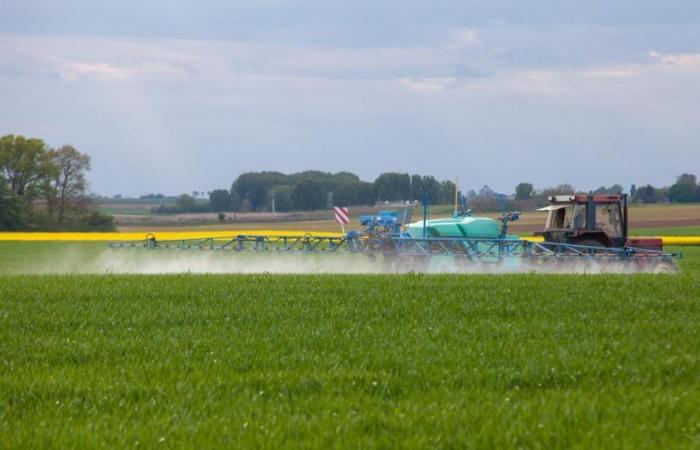The prefecture will authorize the spreading of this polluting fertilizer until December 31, to help farmers sell off their stocks, despite the risks weighing on the environment.
The State accedes to the demands of certain farmers, against a backdrop of agricultural protests. The prefect of Gironde has just authorized this Wednesday an exemption from the spreading of nitrogen fertilizers, in response to representatives of the agricultural world, despite significant risks. Nitrogen fertilizers, which have become essential for maximizing agricultural yields, have particularly harmful consequences for the environment. Breton waters, for example, are among the most loaded with nitrogen in Europe, leading to a proliferation of green algae with deadly fumes.
“The weather conditions of recent months have been marked by significant amounts of precipitation throughout the Gironde department”explains the prefecture. “These exceptional conditions have made it very difficult for farmers to comply with certain provisions”dont “those relating to the minimum periods prohibiting the application of nitrogen fertilizers”. The spreading schedules could therefore not be kept, because the heavy rains waterlogged the soil, making the spill more risky for the environment, because of the significant risk of nitrate leaching: the nutrients would have been dissolved in water, posing the risk of serious pollution of groundwater and watercourses.
To deal with this meteorological situation, the prefect has therefore authorized, in an exceptional manner, the spreading of certain organic effluents (type II nitrogen fertilizers) until December 31, 2024. “This authorization mainly concerns main crops on meadows”more “the maximum volumes of useful nitrogen that can be spread per year remain unchanged, as do all the requirements relating to these operations”. To benefit from this exemption, farmers must request it, specify the volumes spread and on what areas.
A surplus of fertilizer difficult to manage
This late authorization of spreading was made almost inevitable because of the limited storage capacity on agricultural operations for organic effluents (slurry and manure). If these are not spread, farmers can find themselves with a surplus that is difficult to manage, which can pose both logistical and health problems. In 2020, several hundred tons of ammonium nitrate (mainly used as an ingredient in nitrogen fertilizers for intensive agriculture) exploded in the port of Beirut, killing 235 people and injuring 6,500.
This decision by the prefecture illustrates the tension between the need to support farmers – subject to climatic hazards and the production requirements set by the global agricultural market – and the urgency of protecting water resources, soil and biodiversity. Sprinkler syndrome, the use of nitrogen to increase agricultural yield in effect acidifies soils, reducing their long-term fertility and making them more susceptible to erosion. In addition to polluting drinking water, these fertilizers emit enormous amounts of greenhouse gases, releasing nitrous oxide, 300 times more warming for the planet than CO2 and very persistent in the atmosphere.






